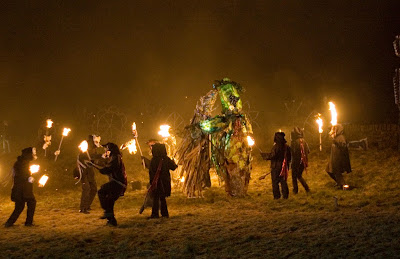CULTURE: St. Patrick - A Global Celebration
Written by Ben Kesp
Day 6 and the end of Irish Saints and Monks week falls to the man himself, St. Patrick. I hope you enjoyed the past week of posts featuring many of the great leaders and influencers of the Irish church like St. Columbanus, St. Brendan, St. Malachy, St. Hilda, St. Ita, St. Columba and St. Bridget. Links to each of these posts can be found below.
St. Patrick – The Man & The Stories
Most people in the world have heard of St. Patrick, who is synonymous with St. Patrick’s Day, Ireland’s national saint celebrated globally. Buildings, landmarks and even rivers turn green for the day celebrating everything that is Irish.
St. Patrick is often accredited with bringing Christianity to Ireland and banishing the metaphorical snakes or paganism from the country. However, there are so many questions about St. Patrick and his role. Much of it is myth and legend. But to say he brought Christianity to Ireland is probably not correct as Christianity was already in practice prior to his arrival around the year 432 A.D., and there also appears to be very little documented evidence about Patrick’s time in Ireland.
Originally, Christianity may have spread to Ireland’s shores from Europe as it became the principal religion of the Roman Empire and developed into the Roman Catholic Church. The Roman Church had already sent a bishop to Ireland prior to Patrick; however, it is also believed that Egyptian Coptic monks visited Ireland prior to St. Patrick to spread its teachings. When Patrick was sixteen years old, he was kidnapped from Britain and taken to Ireland and enslaved. One of the stories goes that following his escape, Patrick sailed to France and onto Lerins, where Egyptian Coptic monks had a monastery. It was a monk named Honoratuswho established a school at Lerins where Patrick would have studied.
When Patrick returned to Ireland, it saw the development of Irish monasticism under his guidance and the Church grew in a unique style to Ireland but was later condemned by the Pope in Rome for its teachings. Ireland had never been part of the Roman Empire; therefore, its style and culture were easily able to adapt to the Eastern style of monasticism. The Irish Church or Irish Christianity survived over six hundred years until the 12th century when the Irish Church under Malachy aligned its practices with the Roman Church.
The Coptic Orthodox Church is the national Church of Egypt and was established around 60 A.D. “Copt” is the same as the word “Egyptian” and comes from the Greek word “Aigyptos” that comes from ancient Egypt. Copts (Egyptian Christians) are the successors of ancient Egyptians, the modern sons of the Pharaohs. The Church played an important role in the development of early Christianity, especially in the first five centuries. Monasticism began in Egypt at the end of the 3rd Century when a young man named Anthony from Alexandria, Egypt travelled into the desert and stayed there for nine years. During this time, many young men travelled to him and monasticism became the basic fundamental structure of the Church. These men later became known as the “Great Fathers of the Desert” or “Desert Fathers” who lived spiritual and disciplined lives.
Egyptian Coptic missionaries are stated to have visited Ireland prior to St. Patrick, to spread its teachings. In County Cork, there is an inscription in Ogham (Ancient Irish writing) that scholars have translated to mean “Pray for Olan the Egyptian”. The Irish monk Dicuil, in the year 825, wrote Liber de Mensure orbis terre wherein he described the pyramids as well as the precursor of the Suez Canal.
Whichever story we can believe on St. Patrick, the name has grown hugely today as a national and international Irish symbol. But let us also consider something. What if three million Irish were not hunted from their lands by their oppressors in the middle of the 19th century, would St. Patrick even be celebrated outside of Ireland? Both America and Ireland would be very different places today!
Image: St. Patrick - Catholic Online




Comments
Post a Comment